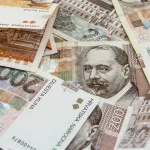As Poslovni Dnevnik writes, the announced possible denial of job preservation/economic aid to companies where workers haven’t been vaccinated has provoked many reactions, Labour Minister Josip Aladrovic was among those who offered their view on it.
”As far as harmonisation with the law is concerned, we haven’t had any problems with harmonising everything from epidemiological measures to economic measures with the law. Everything was done in full accordance with the law. I’m sure that in the dialogue with the unions and employers, we’ll find some good arguments in this case as well, and a quality and legal solution,” Josip Aladrovic said for RTL.
”We have several models that we’re going to present to unions and employers. What’s certain is that we have all borne the burden of this crisis. Therefore, everyone living in the Republic of Croatia, all taxpayers financed this crisis with 34 billion kuna. Now is the time to separate those who are responsible from those who are irresponsible, to encourage accountability through vaccination and a greater level of integration of economic and epidemiological measures. And epidemiological measures now mean, in translation, vaccination,” said Aladrovic.
”We need to be aware that we’re in a health and economic crisis. To overcome this we need to raise the level of vaccination so that the tourist season isn’t jeopardised at this time, and the economy as a whole and beyond can remain stable. We need to integrate the vaccination process with our economic measures,” he said.
“This is an affirmative way, not a way to penalise those who don’t want to get vaccinated, but we’ll arrange our economic measures so that they help those most responsible,” the minister said.
Does this mean that those who will have one or two unvaccinated people in their company won’t be able to count on measures at all, or will that only be the case for those unvaccinated employees?
”It’s too early to say what the model will look like. We’ll present it to employers and unions as equal partners in this crisis first, and then we’ll know what its final appearance will look like, which will certainly be legal and constitutional, and which will affirmatively promote vaccination in order to minimise damage to the economy,” he said.
”Employees of my ministry are certainly not all vaccinated, about 50 percent of them are if I’m not mistaken according to the latest estimates, which is slightly more than the average of the Republic of Croatia. But we’re affirmative towards all state and public services and we’ll also have to find a way for public and state services to function in the future and make a very clear distinction between the rights and obligations of those who are vaccinated and those who aren’t,” assured Josip Aladrovic.
”We will award economic aid to those who are most responsible in society. So, it’s affirmative, that those who are most responsible can more easily cope with the economic crisis, that is, the business difficulties they face. As for penalisation, so far we haven’t prescribed the obligation to get vaccinated nor have we penalised anyone. We now have a lot of critics on these measures. However, we talked a lot in this study about the measures when they were introduced, and we had an equal number of critics then. Now we have 56,000 more employees than last year, 4,000 more than in 2019, which was the strongest economic year since 2008,” he added.
If the Government has failed to motivate all public and public sector employees, how do you expect any of the private employers to succeed in motivating their people?
”I expect the motivation to be the same for everyone. Today, we have a million and a half vaccinated citizens, a million and a half taxpayers who have taken joint responsibility for overcoming the pandemic, the economic crisis and the public health crisis. We must make sure other people follow the same path,” he said.
”So far we’re at the level of 11.7 billion kuna, with contributions that amount stands at almost 17 billion kuna. We covered 700,000 people and 120,000 employers. As the weather improves, the pressure on the measures decreases. But we must point out that for April and May, the projected cost is 400 million kuna. Intensive support to certain sectors is still needed. But we have to allocate these funds in a much better way, we have to allocate them to those who need them the most, we aren’t running away from that,” Josip Aladrovic concluded.
For more, follow our politics section.











